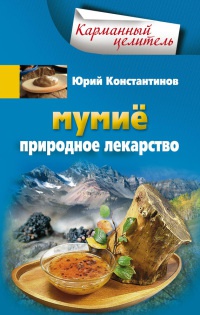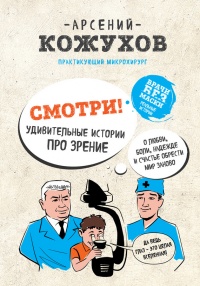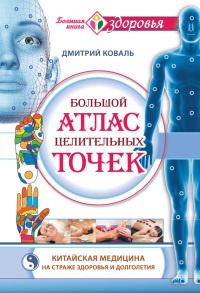Книга На кофеине. Полезная вредная привычка - Мюррей Карпентер
Шрифт:
Интервал:
Закладка:
Гриффитс взял данные из своей более поздней работы: L. M. Juliano and R. R. Griffiths, “A Critical Review of Caffeine Withdrawal: Empirical Validation of Symptoms and Signs, Incidence, Severity, and Associated Features,” Psychopharmacology 176, no. 1 (2004): 1–29.
Карлтон Эриксон, профессор фармакологии и токсикологии: Carlton Erickson, “Addicted to Speculation About Caffeine,” Addiction Professional Magazine, March 1, 2006.
Доктор Салли Сетел отнеслась к этому не менее скептически: Sally Satel, “Is Caffeine Addictive? A Review of the Literature,” American Journal of Drug and Alcohol Abuse 32, no. 4 (2006): 493–502.
Они набрали 94 человека, соответствовавшего критериям: L. M. Juliano, D. P. Evatt, B. D. Richards, and R. R. Griffiths, “Characterization of Individuals Seeking Treatment for Caffeine Dependence,” Psychology of Addictive Behaviors 26, no. 4 (2012): 948–54.
Вот что сообщает афганская полиция по борьбе с наркотиками: United Nations Office on Drugs and Crime, World Drug Report 2009 (Blue Ridge Summit, PA: United Nations Publications, 2009).
Кофеин является такой популярной добавкой: Press Association, “Pair Convicted of Possessing Paracetamol in Legal First,” Guardian, September 21, 2012.
Очищенный аналог: Этот страшный способ использования кофеина подробно описан здесь: http:/boingboing.net/2009/01/19/how-to-make-smokable.html.
Это не смесь кокаина и героина: L. V. Panlilio, S. Ferre, S. Yasar, E. B. Thorndike, C. W. Schindler, and S. R. Goldberg, “Combined Effects of THC and Caffeine on Working Memory in Rats,” British Journal of Pharmacology 165, no. 8 (2012): 2529–38.
Большая часть из них: N. D. Volkow, J. S. Fowler, G. J. Wang, J. M. Swanson, and F. Telang, “Dopamine in Drug Abuse and Addiction: Results of Imaging Studies and Treatment Implications,” Archives of Neurology 64, no. 11 (2007): 1575–79.
В обзоре литературы, сделанном в 1997 году: B. E. Garrett and R. R. Griffiths, “The Role of Dopamine in the Behavioral Effects of Caffeine in Animals and Humans,” Pharmacology, Biochemistry, and Behavior 57, no. 3 (1997): 533–41.
В 1930 году британский исследователь наркотиков: W. E. Dixon, “A Clinical Address on Drug Addiction,” Canadian Medical Association Journal 23, no. 6 (1930).
В обзоре литературы 2005 года: J. E. James and P. J. Rogers, “Effects of Caffeine on Performance and Mood: Withdrawal Reversal Is the Most Plausible Explanation,” Psychopharmacology 182, no. 1 (2005): 1–8.
В исследовании, опубликованном в 2009 году: M. A. Addicott and P. J. Laurienti, “A Comparison of the Effects of Caffeine Following Abstinence and Normal Caffeine Use,” Psychopharmacology 207, no. 3 (2009): 423–31.
В 1996 году британская команда сообщила: N. J. Richardson, P. J. Rogers, and N. A. Elliman, “Conditioned Flavour Preferences Reinforced by Caffeine Consumed After Lunch,” Physiology & Behavior 60, no. 1 (1996): 257–63.
В 1981 году в письме в FDA: Letter from Coca-Cola food and drug counsel Michael J. Gilroy to the FDA, July 27, 1981, in reference to Docket No. 80N-0418.
В отчете 2008 года: International Food Information Council Foundation, Caffeine and Health: Clarifying the Controversies (2008), http://www.foodinsight.org/Content/3147/Caffeine_v8-2.pdf
Гриффитс и его коллеги решили проверить: R. R. Griffiths and E. M. Vernotica, “Is Caffeine a Flavoring Agent in Cola Soft Drinks?” Archives of Family Medicine 9, no. 8 (2000): 727–34.
Связь между ожирением и сладкими безалкогольными напитками: V. S. Malik, B. M. Popkin, G. A. Bray, J. P. Despres, W. C. Willett, and F. B. Hu, “Sugar-Sweetened Beverages and Risk of Metabolic Syndrome and Type 2 Diabetes: A Meta-Analysis,” Diabetes Care 33, no. 11 (2010): 2477–83.
В 2012 году исследователи из Гарварда: Q. Qi, A. Y. Chu, J. H. Kang, M. K. Jensen, G. C. Curhan, L. R. Pasquale, P. M. Ridker et al., “Sugar-Sweetened Beverages and Genetic Risk of Obesity,” New England Journal of Medicine 367, no. 15 (2012): 1387–96.
Расходы США, связанные с последствиями ожирения: E. A. Finkelstein, J. G. Trogdon, J. W. Cohen, and W. Dietz, “Annual Medical Spending Attributable to Obesity: Payer and Service-Specific Estimates,” Health Affairs 28, no. 5 (2009): w822–31.
Келли Браунелл, эксперт по пищевой зависимости: Kelly Brownell, interview by Fen Montaigne, “Food Industry Pursues the Strategy of Big Tobacco,” Yale Environment 360, April 8, 2009.
Эксперты табачной промышленности часто делали то же самое: J. E. Henningfield, C. A. Rose, and M. Zeller, “Tobacco Industry Litigation Position on Addiction: Continued Dependence on Past Views,” Tobacco Control 15, suppl. 4 (2006): iv27–36.
Крестовый поход комиссара FDA Дэвида Кесслера: D. A. Kessler, “Statement on Nicotine-Containing Cigarettes”, Tobacco Control 3, no. 2 (1994): 148–58.
Основная отраслевая группа: American Beverage Association Press Office, “Beverage Industry Responds to DAWN Report on Energy Drinks,” November 22, 2011, press release, http://www.ameribev.org/news-media/news-releases-statements/more/257/.
Глава 6
Первый Red Bull был колой
За 20 лет: Mark Pendergrast, For God, Country & Coca-Cola (New York: Basic Books, 2013, 3rd ed.).
Он продавал около 4 000 000 литров: Coca-Cola Company, 125 Years of Sharing Happiness.
На следующей неделе он накормит их нафталином: Wallace F. Janssen, “The Story of the Laws Behind the Labels,” FDA Consumer, June 1981.
Для Уайли все складывалось неудачно с самого начала: Harvey W. Wiley, Harvey W. Wiley: An Autobiography (Emmaus, PA: Rodale Books, 1957).
Другие свидетели для сравнения: “Experts Continue to Give Testimony,” Atlanta Constitution, March 24, 1911.
Выступая за Coca-Cola: “Experiments Made on 100 Subjects; of This Number of Men 76 Were Not Affected by the Use of Coca-Cola,” Atlanta Constitution, April 1, 1911.
Некоторые показания были удивительно непрофессиональными: “Repudiations from Experts; of Statements Made in Their Own Works,” Atlanta Constitution, March 28, 1911.
После того как один известный психолог: L. T. Benjamin Jr., A. M. Rogers, and A. Rosenbaum, “Coca-Cola, Caffeine, and Mental Deficiency: Harry Hollingworth and the Chattanooga Trial of 1911,” Journal of the History of the Behavioral Sciences 27, no. 1 (1991): 42–55. Not just this passage, but much of this chapter was informed by the work of Ludy Benjamin, an expert on the works of Harry and Leta Hollingworth. Benjamin’s research and writing have ensured that history will remember these pioneering American psychologists.

























